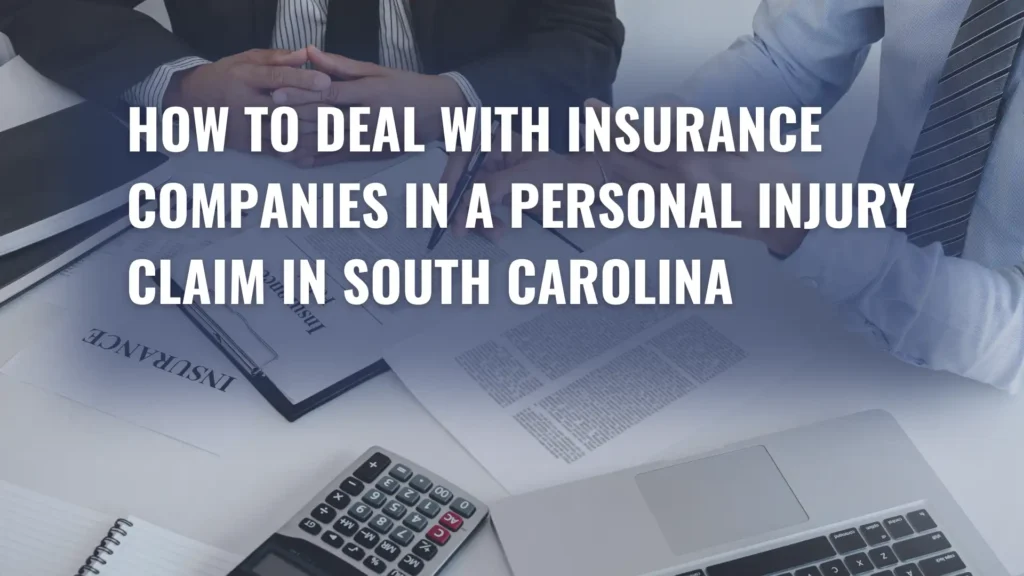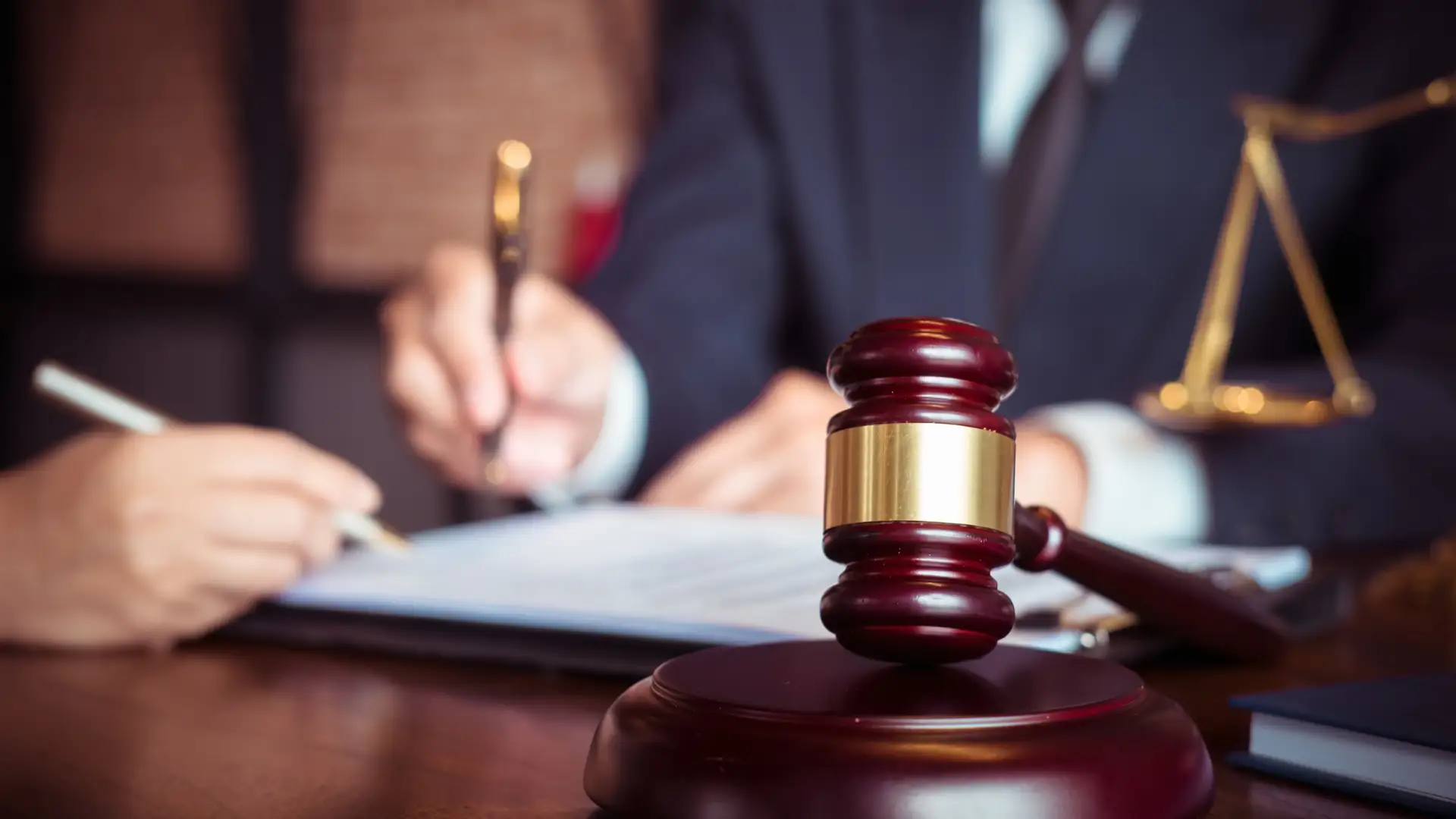
Dealing with insurance in personal injury claims can be stressful and frustrating. After you sustain an injury caused by someone else, you expect their insurance to cover your expenses and make you whole again. However, dealing with the at-fault party’s insurance company often doesn’t go as smoothly as injury victims would like.
Understanding how to deal with insurers can significantly improve your case and help maximize the compensation you could receive through your claim.
What to Expect from Insurance Companies After an Injury
Many injury victims believe that the insurance company’s job is to pay out the compensation they’re owed. However, in reality, the insurance company’s job is to pay you as little as possible.
It may do this by initially denying your claim or offering a settlement well below what it knows your case is worth.
One of the biggest mistakes injury victims make is believing that the insurance company is on their side. Once you realize that the insurance company doesn’t want to help you, you’re ready to take the next steps toward seeking the compensation you need, starting with hiring an experienced personal injury lawyer.
If you have a lawyer on your side, the insurance company is less likely to try to take advantage of you. This is because lawyers have years or decades of experience handling insurance companies and dealing with their tactics. Insurance companies know they won’t get away with those tactics when you have a lawyer.
Tips for Dealing with Insurance Adjusters
An insurance adjuster is an insurance company employee whose job is to investigate incidents and assess the claims that arise from them. These adjusters make liability determinations on behalf of the insurance company, which typically means their goal is to downplay their client’s fault and their employer’s liability.
Knowing the right way to deal with insurance adjusters is crucial, as they’re the person in charge of handling your case from the insurance company’s side. The two main tips you need to know about dealing with them are not to answer their questions and to direct them to your lawyer.
Do Not Answer the Insurance Adjuster’s Questions
You should never answer the insurance adjuster’s questions when your lawyer isn’t present. And if you don’t have a lawyer yet, simply politely decline to answer their questions until you do.
A major part of the insurance adjuster’s job is to get you to admit fault for the incident that caused your injuries. If you were in a car accident, for example, the insurer may try to get you to admit that you were going over the speed limit so they can pin some of the blame for the accident on you. Or if you slipped and fell in a store, they may try to get you to admit that you were looking at your phone rather than paying attention to your surroundings.
Even if you don’t believe you were at fault in any way for the accident, the insurance adjuster will try to get you to say something they can twist into implying that you share fault.
They do this because South Carolina follows a modified comparative negligence rule for determining liability at trial. Under this rule, the compensation awarded to plaintiffs is reduced by a percentage based on their degree of fault, and if their fault exceeds 50 percent, they cannot recover compensation.
While this rule applies only to compensation awarded through a trial, insurers still look to it when determining settlements. So, if the insurer believes it can convince a jury that you were 20 percent at fault for the incident, it may only offer you a settlement covering 80 percent of your claim’s worth.
Direct the Insurance Adjuster to Your Lawyer
If the insurance adjuster keeps contacting you, simply direct them to your lawyer. They can provide your lawyer with a list of questions for you to answer. Or they can set up a call with you through your lawyer.
Personal injury lawyers play many roles throughout the course of your case. They identify at-fault parties, gather evidence, file lawsuits, negotiate settlements, and represent your case in court. However, they also serve as a barrier between you and the insurance company, so you can focus on your recovery without being harassed by the insurance adjuster.
If you’ve ever had to deal with an insurance company on your own, you know how frustrating it can be. Lawyers deal with insurance companies every day and are used to it.
Why You Should Avoid Accepting Early Settlement Offers

While it may be tempting to accept the insurance company’s first settlement offer, you should typically avoid doing so. This is because the first offer is often the lowest and may be significantly less than what your case is worth.
With its first offer, the insurance company is probing to see whether you know your case’s worth and whether you’re willing to sacrifice compensation in order to wrap up your case sooner. For some individuals, immediate compensation is more important than higher compensation. However, this isn’t the case for most people seeking compensation through a personal injury case.
Any time you receive a settlement offer from an insurance company for a personal injury, you should consult a lawyer and have them review it. Even if the offer seems to cover all your expenses, it’s important to be wary of the insurance company and question its motives.
Why is the insurance company offering this amount? Do they know something you don’t? For example, do they expect your medical expenses to increase over time, and are they trying to get you to settle your case before that happens?
Contact Our South Carolina Personal Injury Lawyers
If you were injured in South Carolina and are now dealing with the at-fault party’s insurance company, contact Crantford Meehan for a free consultation with one of our knowledgeable and experienced personal injury lawyers. Our team has over 50 years of combined experience dealing with insurance companies, and we’re ready to put that experience to work for you.
Related Posts:
















